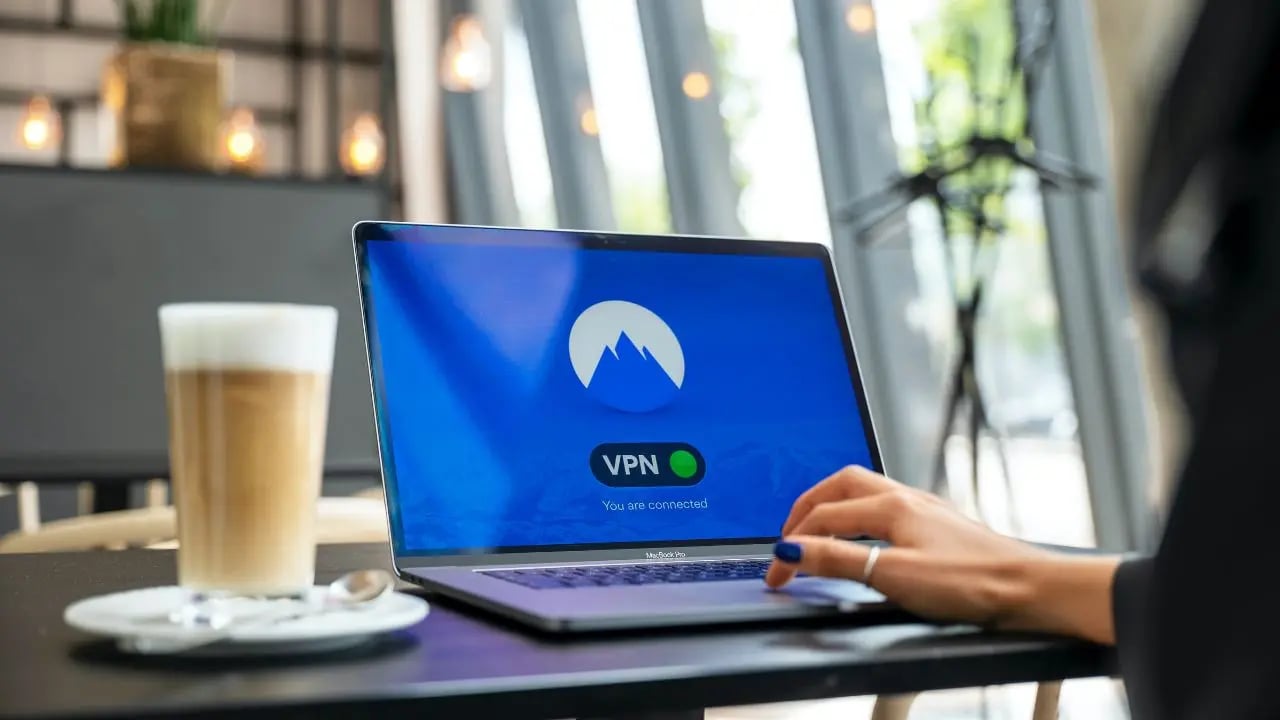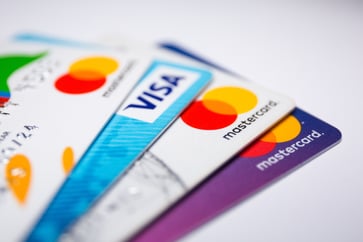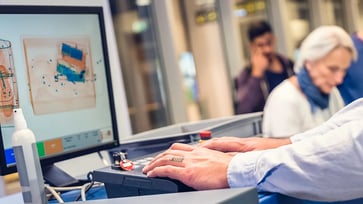Boosting the speed of your VPN connection.
Strategies for enhancing speed and efficiency

VPNs are often used for enhanced privacy and security online, but they can slow down internet speeds. What exactly does a VPN do, and why might this occur?
By establishing a secure, encrypted connection between your device and the internet, a VPN safeguards your data from hackers, advertisers, and other prying eyes. Additionally, this encryption process enables you to browse as if you're in a different location, allowing you to access content that may be restricted in your current location.
Just ask Terry from Reno, who recently reached out with this frustration:
"I can't open the apps on my phone because my VPN is slowing it down!"
VPNs are great for safeguarding data and unlocking restricted content, but they can sometimes slow things down due to the extra layer of protection and location masking. However, there are several ways to keep your VPN running smoothly without sacrificing security. Let's explore these options.

Make sure it's actually the VPN
Before accusing the VPN, let's first verify if it is truly the cause. Here's a simple check:
Disconnect from your VPN: Close your VPN application or turn off the VPN connection in your device settings.
To measure your internet speed, visit Speedtest.net and click the "Go" button. Record your download and upload speeds, as well as the ping.
Connect to your VPN by opening the application and selecting your preferred server. Wait for the connection to be fully established.
To obtain new speed test results, refresh the Speedtest.net page and run the test again. Record the new findings.
If your VPN-connected speeds are less than 60% of your normal speeds, then you may have a VPN problem. If the difference is minimal, you may need to optimize your base internet connection first.

Fixing VPN speed issues
To improve your experience when using a VPN and experiencing slow speeds, it is essential to approach the issue systematically. If the VPN is the cause of the slow connection, there are several steps you can take to increase your speeds.
1. Switch VPN servers
The proximity of the VPN server to your location significantly impacts connection speeds. Choosing a server near you can often result in a noticeable improvement. If you need to access content from a specific country, try different cities within that country. Many VPN providers offer multiple server options in popular locations. Some VPNs also display server load information, which can be helpful. Connecting to a less crowded server typically results in faster speeds, as you're sharing fewer resources with other users.

2. Tweak VPN settings
Customizing your VPN settings can improve performance. If your VPN service allows it, consider lowering the encryption level from 256-bit to 128-bit AES. While 256-bit encryption is secure, it can slow down your connection. The 128-bit AES encryption is still secure and may offer a speed boost. Another setting to look for is the WireGuard protocol. If your VPN provider offers it, enabling it can significantly improve your connection speed. For those using OpenVPN, switching from TCP to UDP can often result in faster speeds. However, be cautious when making these changes, especially if you're not sure about their implications. Don't disable critical security features in your quest for speed.
3. Change VPN protocols
Different protocols have varying levels of speed and security. While protocols like PPTP, L2TP, and IKEv2 are known for their speed, they may not provide the highest level of security. OpenVPN is often the default choice as it strikes a good balance between speed and security. If you choose to stick with OpenVPN, switching from TCP to UDP can potentially provide a noticeable speed boost without compromising security.
4. Update your VPN app
To ensure optimal performance and security, it is crucial to keep your VPN application up to date. VPN providers frequently release updates that improve functionality and address any bugs or vulnerabilities. An outdated VPN app can cause compatibility issues with your operating system, which can slow down performance and reduce connection speeds. To avoid these issues, regularly check for updates within your VPN app's settings or visit the provider's website to download the latest version. Many VPN services also offer an automatic update feature, which you should enable to ensure you always have the most current version of the software without having to remember to do it manually.
5. Close background apps and optimize your device
To enhance your VPN speed, minimize the load on your device by closing unnecessary background applications that consume bandwidth and processing power. Examples include streaming services, file-sharing programs, and auto-updating software. Before connecting to your VPN, close these apps and temporarily disable auto-sync features. Additionally, restarting your device before initiating a VPN connection can clear temporary files and free up memory for a smoother experience.
6. Consider a faster VPN service
If your current VPN service is not delivering satisfactory speeds despite trying various troubleshooting methods, it may be time to explore other options. The market is filled with VPN providers that prioritize speed and reliability, so it is crucial to conduct thorough research. Look for services that have a vast network of servers strategically located worldwide, as this can significantly improve connection speeds. Many top-tier VPN providers offer free trials or money-back guarantees, enabling you to test their performance without any financial risk. When evaluating potential new services, consider not only their speed but also their security features, privacy policies, and customer support options. By making an informed decision, you can find a VPN that meets both your speed requirements and security needs effectively.
While VPNs can help optimize internet speed, it's important to have realistic expectations. Your ISP's maximum speed will always be the limiting factor. However, by implementing these techniques, you can ensure that you're getting the most out of your VPN connection and minimizing any unnecessary slowdowns.

Find the perfect VPN
Whether you're new to VPNs or require a faster and more secure option, it's crucial to select trusted VPN providers with strong encryption and no-log policies to safeguard your privacy. Whether for confidential work or everyday use, reliable VPN services will enhance both your security and speed. For the top VPN software, check out my expert review of the best VPNs for secure browsing on your Windows, Mac, Android, and iOS devices.
Kurt's key takeaways
VPNs are excellent privacy tools, but they should not negatively impact your internet experience. By making slight adjustments, you can achieve a balance between speed and security. Additionally, I hope these suggestions will help resolve any issues with your phone apps. While a VPN may slow down your device slightly, it should not render it unusable. If the problem persists, please contact your VPN's support team or try a different service.
How have you addressed the challenges of balancing VPN security with connection speed, and what solutions have you implemented? Please share your experiences with us at Cyberguy.com/Contact.
To receive more of my tech tips and security alerts, subscribe to my free CyberGuy Report Newsletter by visiting Cyberguy.com/Newsletter.
Let us know what stories you'd like us to cover.
Follow Kurt on his social channels:
Answers to the most-asked CyberGuy questions:
New from Kurt:
Copyright 2024 CyberGuy.com. All rights reserved.
tech

15 things to do or try first when you get a new iPhone: 1. Set up your phone with your personal information and preferences. 2. Install your favorite apps and games. 3. Connect your phone to your Wi-Fi network and other devices. 4. Take a few photos and test out the camera. 5. Set up your email and other accounts. 6. Enable security features like Touch ID or Face ID. 7. Customize your phone's settings and appearance. 8. Explore the built-in features and apps on your phone. 9. Connect with friends and family on social media. 10. Set up reminders and alarms. 11. Use the phone's built-in voice assistant. 12. Download and install new apps from the App Store. 13. Set up your phone's screen time and parental controls. 14. Enable automatic updates for your apps and software. 15. Back up your important data to cloud storage or an external hard drive.
techYou might also like
- Five top home inventory apps to safeguard your property during an emergency
- Your smart home gadgets will soon receive a new security seal of approval.
- This year, save time, privacy, and money with these 10 tech upgrades.
- Is your Windows 11 PC frequently restarting? Let's resolve this annoying issue.
- Sony's entry into the electric vehicle market is a surprising move.


















